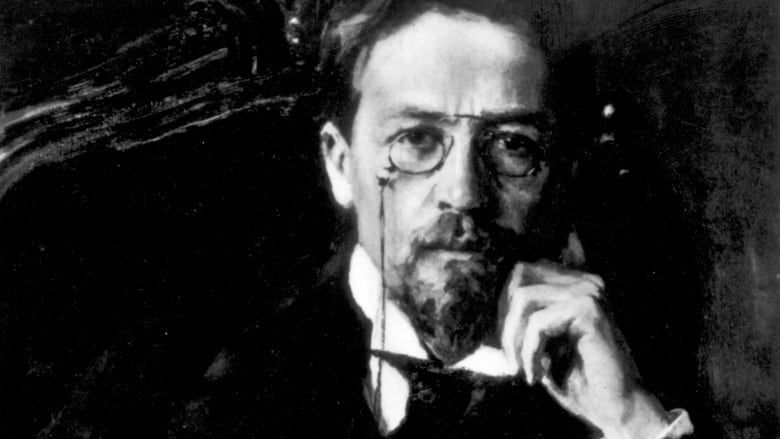“We are weak,” says a character in Anton Chekhov’s “Ward 6,” “I reasoned confidently … but at the first rude touch of life … I lost courage … collapsed … we are weak … we are miserable creatures.” As a person who truly does not enjoy admitting vulnerability, I’ve learned a lot from Anton Chekhov, particularly in the era of COVID-19, which I’ve spent often feeling vulnerable, in real and imagined ways. As many of us, I regularly remind myself of worse times I’ve lived through — civil war in Albania during 1997, the fall of communism in 1991. And when I run out of those, I start looking into Russian literature and culture for a wealth of examples of bad times and perseverance. And then there’s Dr. Chekhov, not the first Russian writer I reach for, but one whose artistic sensibilities speak directly to the pandemic.
A doctor who himself contracted TB, and who helped treat others during the cholera outbreak, Chekhov understood disease and confinement. The quietest of the 19th-century Russian greats, he is often seen as the “objective” one; he grants few answers, but raises many interesting questions. It is perhaps due to his ambivalence that Chekhov speaks to the era of COVID-19. “[I]t seems that in a little while we shall know why we are living, why we are suffering,” says Olga, one of Chekhov’s Three Sisters, “If only we could know, if only we could know!” What kind of meaning will our children and their children extrapolate from the times of COVID-19?
Most pandemic days are furiously difficult, exhausting, relentless in their strange and surprising twists; each is different from the other, and the moment it looks like something in the way of a rhythm is emerging, new and unforeseen complications emerge, sending us into a tailspin — and our search for answers begins anew, often in the wrong places. Sometimes the struggle seems productive, sometimes a Sisyphean endeavor. And it is this uncertainty of life in the pandemic that makes Tolstoy sound too imperious, too confident in his ability to solve everything, even death. Chekhov offers no such clarity; his characters are usually bored, living or working through a low-grade depression. Their purpose gets murky, and they don’t always rise to the challenges that present themselves.
These days most of us are stuck in our social pods, mired in the intricate details of our lives, never fully transcending the dull ache of everyday isolation. Thought threads remain unfinished, book manuscripts stall, children are bored and idle, the dishes pile up, rooms grow more cluttered, doors stay closed. If we remain safe from the virus, we succumb to the disjointed pressures of socially distanced yet cluttered life.
There is no single Chekhovian epiphany than transcends the hegemony of this messy bind. There is no single focal point, no greater truth. The only thing that is certain in Chekhov’s writings is that we all live with terrible, idiosyncratic vulnerability. His diagnosis is particularly relevant to our time, as we are plagued by a disease to which each person seems to respond differently. Will my type A blood affect my response, my age, my background? If only I could know for sure.
Anxious not knowing is the permanent condition, and it itself may be deadly. In an early comic Chekhov story, a character sneezes on a superior’s back and eventually dies from anxiety after trying to secure forgiveness only to be shouted down. The protagonist of “A Man in a Case” is a schoolteacher deeply attached to his personal boundaries who briefly attempts a more extroverted lifestyle, but then must retreat into the isolation of his home, back into his metaphorical case, to die from the anxiety of overexposure. Isolation may be the answer to vulnerability, but it is an awful, deleterious answer.
As a physician diagnosed with TB, Chekhov understood vulnerability better than anyone. He went on to write and document the bodily and psychic vulnerabilities of others is his art, emphasizing how certain groups for whom protections were minimal — such as indigenous populations, peasants, Jews, underprivileged urban youth, and convicts — were more vulnerable than others. This perspective also seems uniquely relevant to our time, given how disproportionally COVID-19 has affected the poor and people of color.
With his emphasis on vulnerability, Chekhov moves away from moral judgment and deploys ethics of a different kind. When addressing the philosophical dimensions of Chekhov’s prose, critics have written of his distaste for absolute philosophical standards, which sets him apart from Tolstoy and Dostoevsky. His ethical imperative, though obviously cognizant of good and evil, was more practical in nature; his stories call us to open our eyes to each other’s fragility.
While few of us are ready to renounce moral judgments altogether, a Chekhovian recognition of our shared yet idiosyncratic vulnerabilities may be the proper basis for empathy during these uncertain times.
¤
LARB Contributor
Ani Kokobobo is associate professor and chair of the Department of Slavic Languages and Literatures at the University of Kansas, where she teaches Russian literature and culture. Last summer, she published an edited volume: Russian Writers and the Fin de Siècle – The Twilight of Realism (Cambridge University Press, 2015). She has a monograph forthcoming, Russian Grotesque Realism: The Great Reforms and Gentry Decline (Ohio State University Press, 2017), as well as another edited volume, Beyond Moscow: Reading Russia’s Regional Identities and Initiatives (Routledge, 2017).
Did you know LARB is a reader-supported nonprofit?
LARB publishes daily without a paywall as part of our mission to make rigorous, incisive, and engaging writing on every aspect of literature, culture, and the arts freely accessible to the public. Help us continue this work with your tax-deductible donation today!
